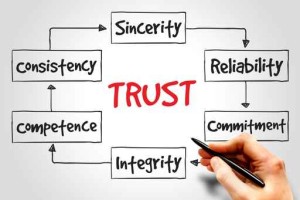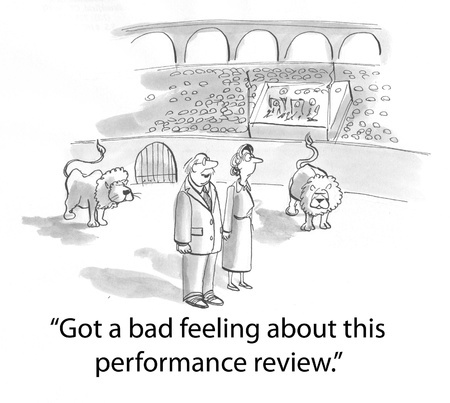Leadership & Character – Trust
 I have recently been doing some reading on the process people undergo in making decisions. I am fascinated by the number of factors that influence decisions and the impact of these factors. As one would expect, logic and reasoning (assessing the pros and cons), is an important element in the decision making process. What I found intriguing is that people can make decisions that – when objectively analyzed based on the data – are decisions that are difficult to rationalize. Factors such as emotion, pre-existing perceptions and trust play a large role in the decisions we make. Leaders must be aware of these factors and their impact on decisions. In this blog post, I am going to focus on the role of trust in decision making.
I have recently been doing some reading on the process people undergo in making decisions. I am fascinated by the number of factors that influence decisions and the impact of these factors. As one would expect, logic and reasoning (assessing the pros and cons), is an important element in the decision making process. What I found intriguing is that people can make decisions that – when objectively analyzed based on the data – are decisions that are difficult to rationalize. Factors such as emotion, pre-existing perceptions and trust play a large role in the decisions we make. Leaders must be aware of these factors and their impact on decisions. In this blog post, I am going to focus on the role of trust in decision making.
There is a somewhat famous story of the decisions made by Johnson & Johnson when dealing with the situation involving the tampering of Tylenol. In September of 1982, seven people in the Chicago area died after ingesting Tylenol capsules that, after investigation were found to have been contaminated with cyanide poisoning. Johnson & Johnson chose to put the safety of the consumers ahead of all other factors and voluntarily halted production of Tylenol capsule products and removed existing inventory from retail shelves. They also encourage consumers to return the Tylenol capsule products for a full refund.
The company spent over $100 million in their efforts to ensure consumer safety. What is interesting is that the so-called pundits predicted that this tragedy would lead to the demise of Tylenol as a brand. However, in retrospect the actions of Johnson & Johnson secured the trust of the public because of the clarity with which they put consumer safety ahead of everything else.
Soon after removing all existing capsules from the market, Johnson & Johnson reintroduced Tylenol capsules in a tamper-proof container. Within a year Tylenol achieved a market share very close to the level it had enjoyed prior to the Chicago tampering incident. It took even less time for Johnson & Johnson to restore shareholder confidence. I think there is an important lesson here – establishing and keeping trust is critically important and at times requires a great deal of courage to make decisions that truly demonstrate good character. The trust that consumers attribute to the Tylenol brand is a critical factor in the decision-making process when deciding which pain reliever to choose. Johnson & Johnson recognized the importance of this trust and made the necessary tough choices during a very difficult situation.
The Tylenol story is a great example of how to earn the trust of others. Unfortunately, we are frequently confronted with stories of individuals and organizations who have acted with poor character and have significantly eroded people’s trust. The challenge with this is best summarized by former chairman and CEO of IBM, Thomas J Watson who was quoted as saying: “the toughest thing about the power of trust is that it’s very difficult to build and very easy to destroy.”
Effective leadership requires character and trustworthiness. They are core components of good character. For individuals and organizations to be successful, they must find ways to measure character traits such as trustworthiness. This trait and other important character competencies can be incorporated into leadership training that emphasizes a philosophy of building a Personal Leadership Effectiveness Culture that reinforces CQ (Character Quotient). By embedding positive principles into the culture, an organization can know that building and nurturing trust is important to leaders at all levels and will increase their effectiveness and overall performance.
Does your organization currently have these measurement tools and emphasis in place? I look forward to connecting with you. You can reach me by telephone or email or leave a comment right here on the site.
Dave
David Town, CHRL, is a facilitator and coach of leadership and management principles that enable individuals and organizations to build greater leadership competency, resulting in higher performance and higher employee engagement. David has a particular focus on effectively managing conversations involving confrontation or conflict. As well, he provides insights and assessment strategies for integrating character competencies into leadership skills resulting in increased trust and reduced risk for leaders. David is President of Your Leadership Matters Inc.




Leave a Reply
Want to join the discussion?Feel free to contribute!